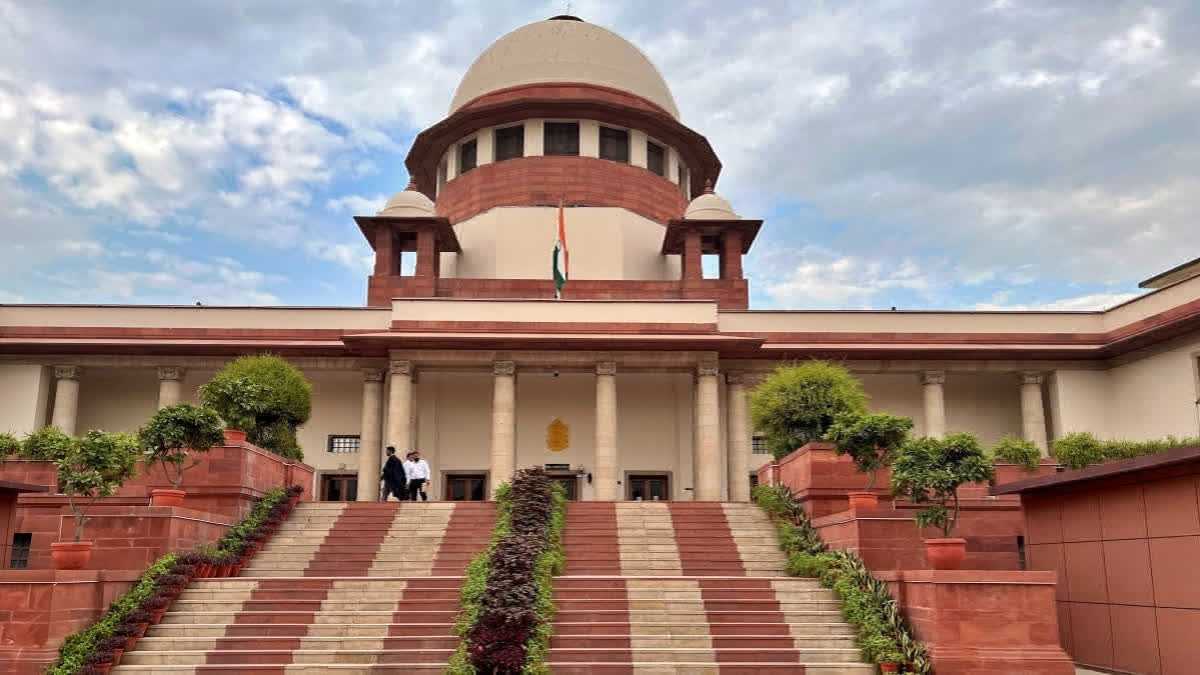New Delhi:The Supreme Court is grappling with a pendency of over 80,000 cases, and with the retirement of four judges, which include the Chief Justice of India D Y Chandrachud, the cases will continue to pile on if vacancies are not filled in time.
The total sanctioned strength of the Supreme Court is 34 judges. A vacancy has been created after the retirement of Justice Sanjay Kishan Kaul in December 2023. In April 2024, Justice Aniruddha Bose will retire and in May, Justice A S Bopanna will retire. Justice Hima Kohli will retire in September 2024. Finally, CJI Chandrachud will bid adieu in November 2024. After CJI’s retirement, Justice Sanjiv Khanna will take over as new CJI. Justice Khanna’s tenure will be from November 11, 2024 to May 13, 2025. The apex court judges superannuate at 65.
Three judges who will retire in 2024 have spent a maximum of four years or less in the top court. However, the CJI was appointed to the apex court in May 2016, a tenure of over 8 years. After Justice Kohli’s retirement, the apex court will have only two women judges: Justice Bela M Trivedi and Justice B V Nagarathna.
Justice BV Nagarathna is poised to be the first woman Chief Justice in 2027. In 2021, in a first, Centre had cleared the appointment of three women judges to the apex court. Till date the apex court has had only eight women judges. It will be interesting to see if the Supreme Court collegium decides to appoint more women judges to the apex court.
The process of considering names for appointment will begin as soon as judges retire. If the Centre were to delay the appointments, then it would impact the pendency of cases. However, since 2021, Centre’s has fast-tracked the process of clearing the names for judgeship, especially for the apex court. The onus is now on CJI Chandrachud, who heads the apex court collegium, to begin considering names for elevation to the apex court. Timely appointment of judges will definitely help in countering the pendency of cases, which is currently 80,765.
In November 2023, while recommending the three high court chief justices for judgeship in the apex court, the Supreme Court collegium had stressed that in view of the ever-mounting pendency of cases, the workload of judges has increased considerably and bearing that in mind, it has become necessary to ensure that the court has full working judge-strength leaving no vacancy at any point of time.
How are Supreme Court judges appointed -For recommending names for judgeship in the apex court, the collegium carefully evaluates the merit, integrity, and competence of eligible chief justices and senior puisne Judges of the high courts and it also considers accommodating a plurality in the recommendations.
In a resolution issued on November 6, 2023, clearing names of three high court chief justices for elevation to the apex court, the CJI headed collegium had said: “The need to ensure diversity and inclusion in the Supreme Court by: (i) representation of High Courts which are not represented or are inadequately represented, in the Supreme Court; (ii) appointment of persons from marginalized and backward segments of society; (iii) gender diversity; and (iv) representation of minorities”.
The collegium considers judgments authored by those falling in the zone of consideration for elevation to the Supreme Court. These judgments are circulated among the members of the collegium, well in advance, for a meaningful discussion on and assessment of their judicial acumen. The Centre for Research & Planning of the Supreme Court prepares a compilation of relevant background material to assist the Collegium.
In November, the collegium had recommended: Justice Satish Chandra Sharma, chief justice, High Court of Delhi (parent high court: Madhya Pradesh); Justice Augustine George Masih, chief justice, Rajasthan High Court (PHC: Punjab & Haryana); and, Justice Sandeep Mehta, chief justice, Gauhati High Court, (PHC: Rajasthan). On November 9, the CJI administered oath to justices Satish Chandra Sharma, Augustine George Masih and Sandeep Mehta as judges of the Supreme Court.
Read More
- CJI refuses to respond to criticism over judgements on scrapping Article 370, same-sex marriage
- SC Collegium recommends new Chief Justices for 5 High Courts
- ‘Concerned about break down of data not available to public’:' SC on Bihar caste survey
